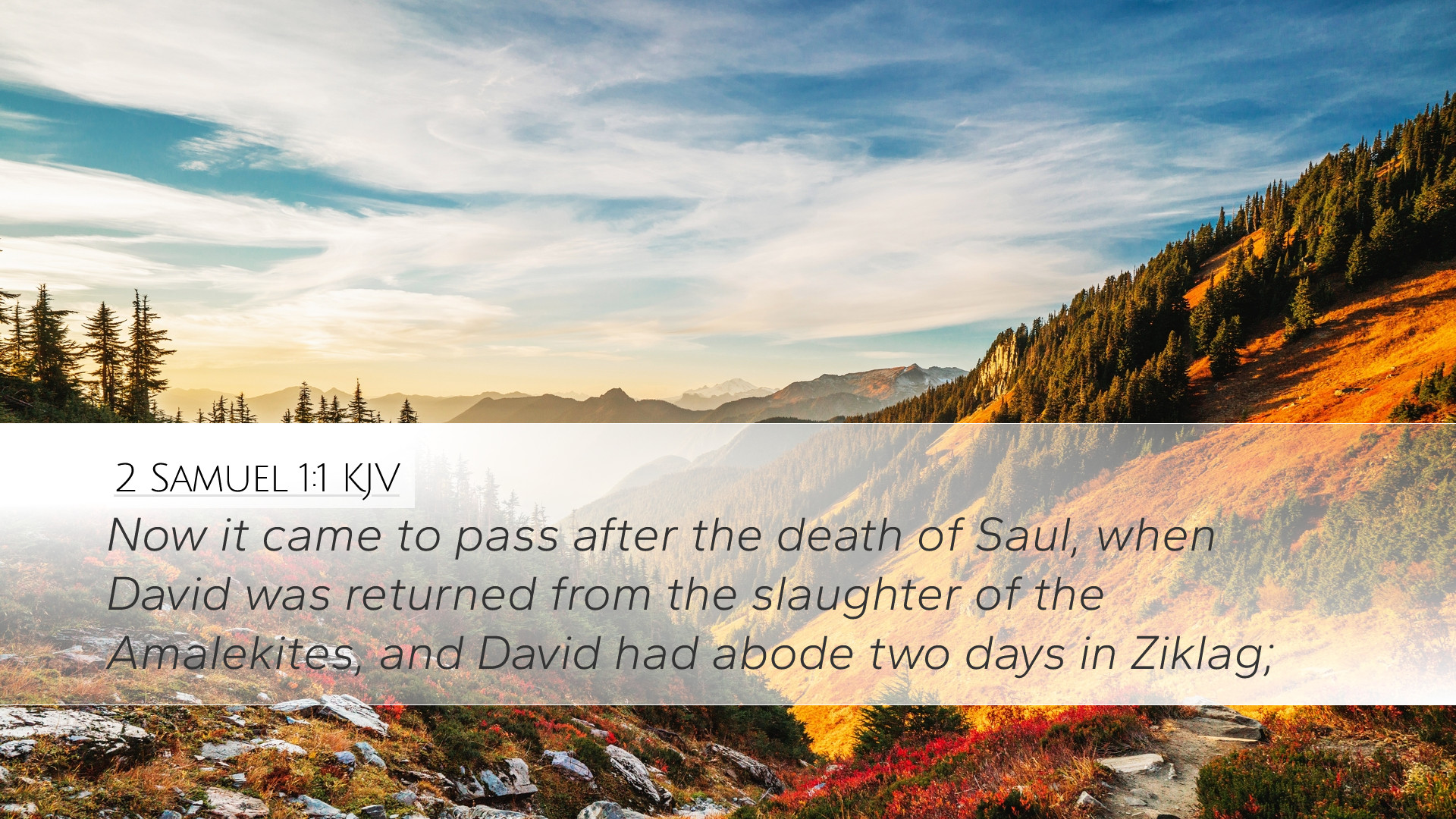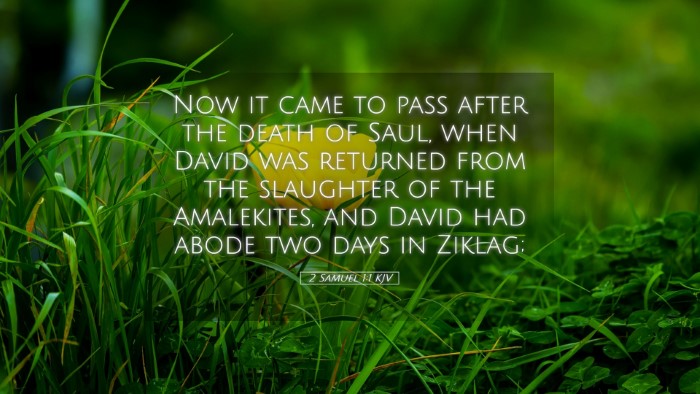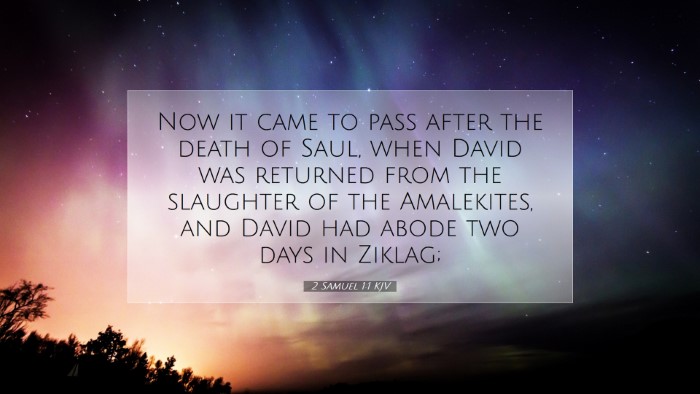Commentary on 2 Samuel 1:1
Introduction
The verse 2 Samuel 1:1 states: “Now it came to pass after the death of Saul, when David was returned from the slaughter of the Amalekites, and David had abode two days in Ziklag.” This verse serves as a pivotal transition between the life of Saul, the first king of Israel, and the rise of David, the anointed king. It marks a crucial moment in Israel’s history, where the sovereignty of God begins to unfold in a new phase through David.
Context and Background
Historical Context: This verse occurs after Saul’s tragic death at the hands of the Philistines, which is detailed in 1 Samuel 31. David’s return from Ziklag highlights the immediate aftermath of this monumental event. David had been engaged in a battle against the Amalekites—a group that symbolizes opposition and strife against God’s people, thus portraying David as a figure of God’s appointed leader, who battles Israel’s enemies.
Thematic Insights: This verse introduces themes of mortality, kingship, and the providential care of God. The death of Saul signifies the end of an era marked by disobedience and instability. Conversely, it sets the stage for David's rise—a king characterized by his heart for God, a common thread in biblical theology.
Insights from Commentaries
Matthew Henry
On David's Actions: Henry emphasizes that David’s return and his presence in Ziklag is significant for understanding his leadership. He points out that after receiving news of Saul's demise, David is deeply affected, showcasing his respect for Saul’s position as king, despite their tumultuous relationship. Henry notes that David's mourning for Saul, as seen in the verses following, reflects the spirit of humility and honor that characterized David's approach to leadership.
Albert Barnes
On the Timing of Events: Barnes elaborates on the timing indicated within this verse. He highlights that David had just returned from a successful campaign against the Amalekites, signifying a period of turmoil and conflict. Barnes provides clarity on the chronological order of events and stresses the symbolic value of David’s military victories, which serve as the backdrop for his ascension to the throne of Israel. This success against the Amalekites underscores David's capability as a leader and warrior, essential qualities for the future king of Israel.
Adam Clarke
On the Importance of Mourning: Clarke comments on the significance of mourning within the Hebrew culture, which David embodies when he hears of Saul's death. He notes that David's grief signifies not just personal loss but also the weight of mourning for the nation. Clarke emphasizes that this mournful moment illustrates the complexity of human relationships and the reality of sin in leadership. Saul's fall, while indicative of his failures, serves as a cautionary tale for future leaders about the serious consequences of turning away from God.
Theological Reflections
Providence and Sovereignty: The event encapsulated in 2 Samuel 1:1 reflects the providence of God. The transition from Saul to David embodies the sovereignty of God in establishing leadership that is aligned with His will. This shift is crucial for understanding God's overarching plan for Israel and the future of the Davidic dynasty. Thus, it provides a rich ground for theological reflection on how God raises leaders in times of crisis and transition.
The Nature of Leadership: The passage invites introspection regarding what constitutes godly leadership. David, a man firmly in touch with his emotions and grounded in humility, contrasts with Saul’s tragic flaws. Pastors and leaders are reminded through this narrative of the necessity of a heart aligned with God’s purpose, prioritizing humility over pride.
Practical Applications
-
Emotional Responses to Leadership:
This verse encourages leaders to process their emotions healthily, especially in times of change and loss. David's mourning sets an example for contemporary leaders on the significance of empathy and respect, even towards those who may have wronged them.
-
The Call for Dependence on God:
David's reliance on God for direction in new circumstances serves as a continual reminder for contemporary believers. Leaders are called to seek divine guidance in all affairs, particularly in transitions that come with significant emotional weight.
-
Recognizing God's Hand in Historical Events:
The transition from Saul to David is not merely a political shift but a divine orchestration. This understanding encourages believers to see God’s active role in their histories—national, communal, and personal.
Conclusion
In summation, 2 Samuel 1:1 encapsulates an essential moment in the biblical narrative that serves rich theological and practical insights. The verse sets the stage for the emergence of David as king and encourages reflection on themes of leadership, mourning, and the sovereign will of God. As pastors, students, and theologians engage with this text, it invites them into a rich dialogue about the complexities of leadership and the role of divine providence in the affairs of humanity.


